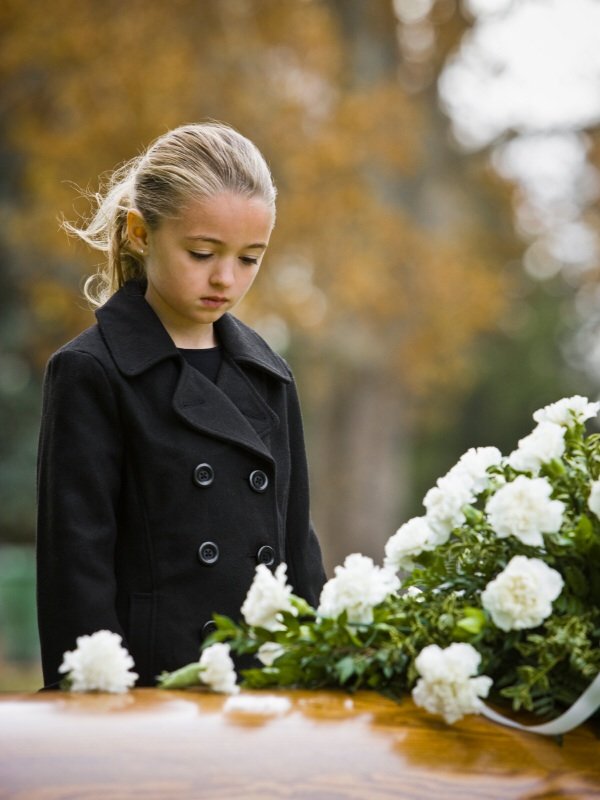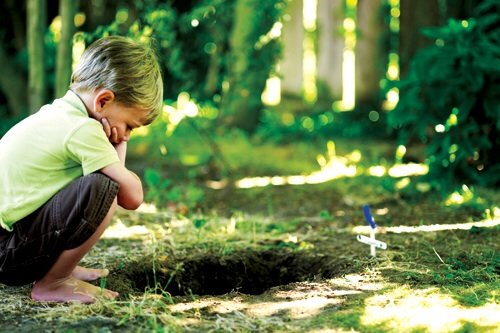
Children and Loss
If you are old enough to love, then you are old enough to grieve. Depending on their developmental level, children will grieve differently and the loss will mean different things to their lives. It is important for adults to listen to the children and respond to their questions with honest, easily understandable answers. In some cases, children will act in uncharacteristic ways. When they do, they need compassionate adults to gently respond and help them on their grief journey.

Child's Perspective on Loss
Children’s perspectives on loss vary according to their age and developmental level. While an infant might notice an absence, a teenager might experience intense emotions, yet try to hide them. Regardless of their age, children who’ve lost a loved one need supportive and compassionate adults to create safe places for them to share their thoughts and feelings. They also need adults to listen and address their fears. Surrounded by caring adults, children can grieve in their own unique way and begin to heal.

Helping Children Cope with Grief
Children who have experienced a loss may have many questions. The adults in their lives can help them toward healing by honestly and simply answering these questions and dispelling their fears. Sometimes instead of asking the questions, the child will hold their concerns inside. Adults may need to initiate the conversation and let them know their emotions are a natural part of the grieving process on the way towards healing.
Helping Children Cope with Grief





